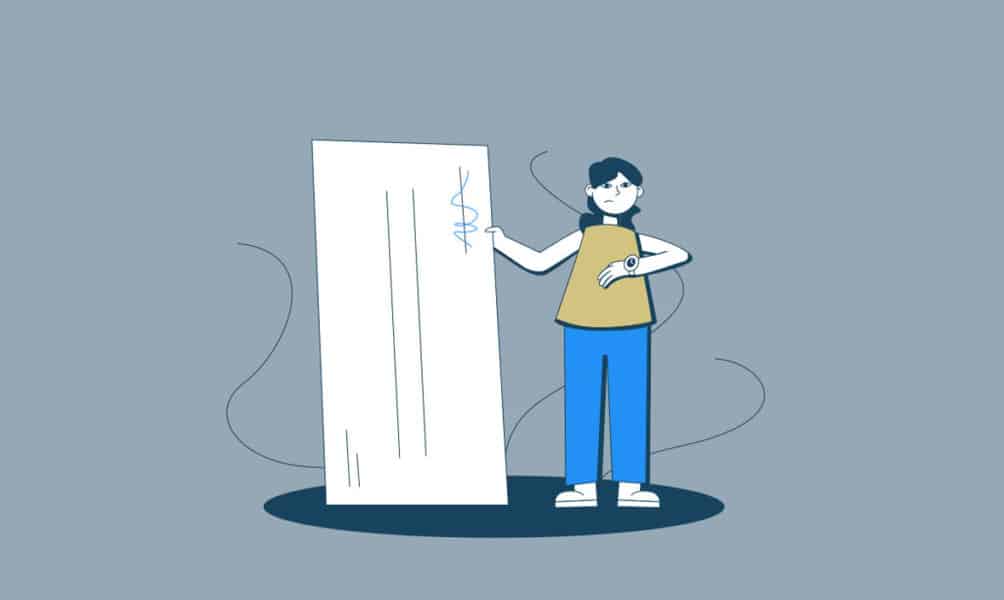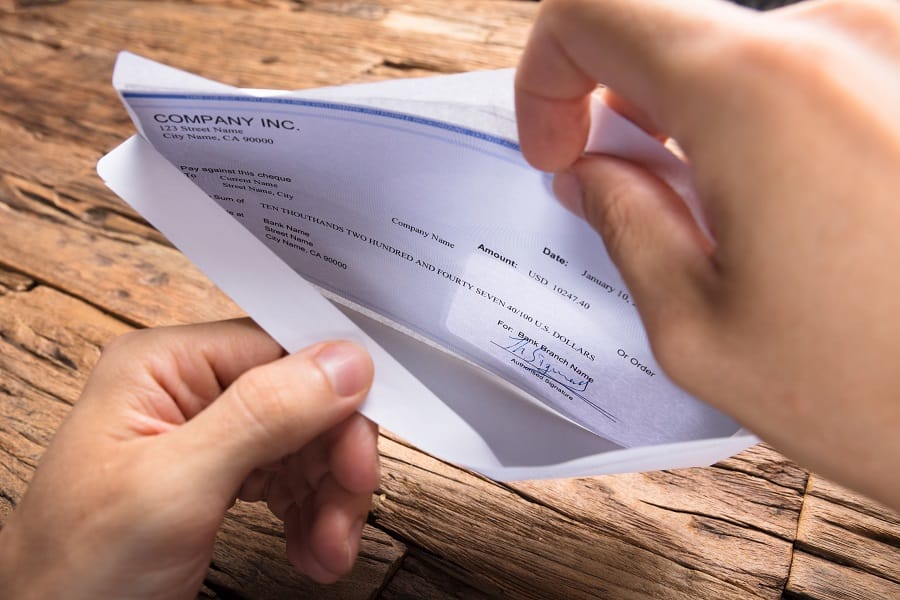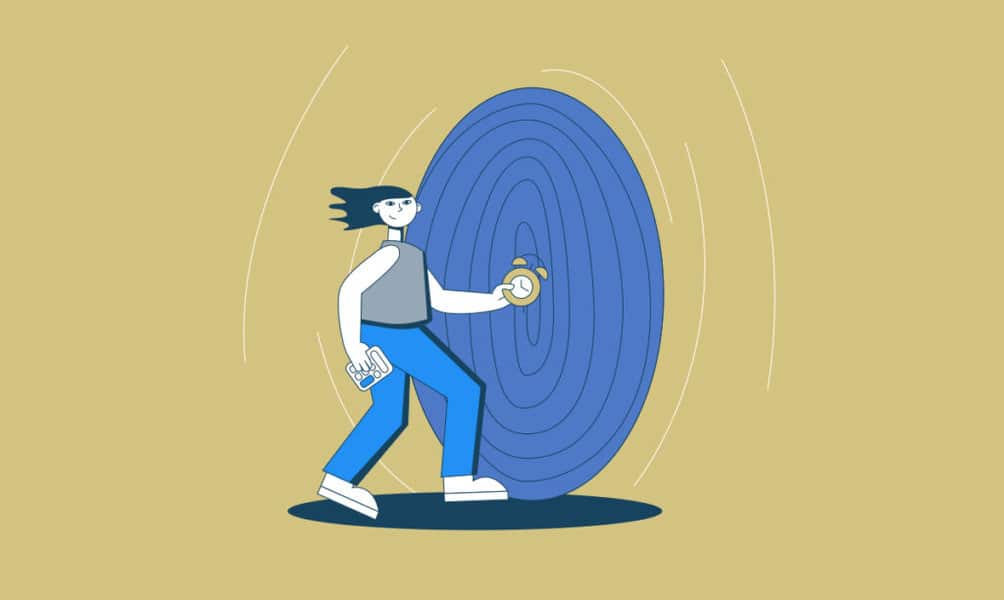If you’re just starting a business and expecting to hire employees, you’ll soon tackle the challenge of payroll. Managing payroll is oftencompli ...
Do Payroll Checks Expire?
Written by: Coralee Bechteler
Coralee is a business writer with experience in administrative services, education, and software testing.
Reviewed by: Daniel Eisner
Daniel Eisner is a payroll specialist with over a decade of practical experience in senior accounting positions.
Updated on October 1, 2023

Do Payroll Checks Expire?
- Is an Expired Check the Same as an Outstanding Check?
- How Long are Checks Valid?
- What Problems Can Expired Payroll Checks Cause?
- What Should HR Do About an Expired Payroll Check?
- Conclusion
It may sound unlikely, but it’s not uncommon for an employee to receive a check then fail to deposit or cash it before it expires. Maybe the worker got into an accident, had to deal with a major trauma or family illness – or just plum forgot. The possibilities are endless.
Whatever the reason, this guide explains the concept of paycheck expiration dates and lays out the best ways to handle such a situation.
Is an Expired Check the Same as an Outstanding Check?

It’s important to know the differences between an outstanding check and an expired check.
Outstanding Checks
An outstanding check is typically a check that’s been issued and received but not yet cashed or deposited. This means that the relevant funds have not yet been taken out of the business’s bank account.
As a result, it’s crucial that the business owner and HR team ensure adequate funds remain in the account, in case it is finally deposited. Otherwise, the check could bounce and the bank would charge the employer a non-sufficient fund fee, or NFT fee, which can be considerable.
The term outstanding check can also refer to a check that has been deposited but remains pending due to bank processing.
Expired Checks
An expired check is typically a delivered check the recipient failed to deposit or cash within the allotted time frame, which is often six months. You might have heard of “stale checks” or “stale-dated checks”, which are the same as expired checks.
Yet as detailed below, there are different types of checks, with varying periods of validity.
How Long are Checks Valid?
What are the different check types, and who chooses their expiration dates? Let’s take a closer look.
The Uniform Commercial Code
The Uniform Commercial Code, or UCC, is a set of laws that manages all commercial transactions in the United States. The UCC is not a federal law, but a uniform law, which means all states have implemented some version of the code.
The Uniform Commercial Code helps states determine guidelines for when checks expire, including payroll checks.
Types of Checks
Personal Checks
Personal checks offer the most flexibility when it comes to depositing or cashing. As we mentioned above, most checks are valid for six months.
After six months, it becomes the bank’s decision to accept the check or not. In fact, banks can even choose to accept the check after confirming its validity with the payer and the bank from which the funds will be drawn.
Of course, the easier route is for the recipient to get in touch with the payer of the check, honestly explain the situation, and kindly ask the payer to issue a new check.
Businesses can actually pay employees in personal checks rather than business checks. The upside is the money saved from not purchasing business checkbooks, while the downside is that using personal checks lowers the business’s credibility and elevates liability.
Certified Checks
Certified checks are the simplest because they never expire. This is because the funds are taken out of the payer’s bank account at the time of the check’s issuance. The money is, in a way, within the check itself. Just don’t lose it! Recovering those funds can be a hassle.
This means that the recipient doesn’t have to worry about the certified check going stale, because the bank won’t allow the money promised to be withdrawn for any other reason. For HR purposes, the funds are always there within the check waiting to be cashed – this check cannot bounce.
Cashier’s Checks
Cashier’s checks are similar to certified checks, but they’re often used for transferring large sums from one account to another. For instance, a business that regularly makes big vendor purchases may opt to use cashier’s checks to pay.
The process involves the bank accessing the payer’s funds and transferring them into their own account so the payer cannot access and spend these funds. This means that cashier’s checks are paid by the issuing financial institution, guaranteeing that the money will be readily available whenever the check is deposited or cashed.
Cashier’s checks are more complicated as there isn’t an official validity period, and rules can vary from state to state. If a cashier’s check goes uncashed past the expiration date (if one is identified), the bank may turn the funds over to the state as unclaimed property as part of the escheating process.
Typically, a bank won’t turn an uncashed cashier’s check over to the state for three to five years after its issuance. But the guidelines are determined by each state. To avoid confusion, we recommend examining your checks to see if a voidance date is specified.
Treasury Checks and Tax Refund Checks
Checks issued by the United States Treasury are valid for one year, and the expiration date is usually stated on the check itself. If an employee fails to deposit their tax refund check before it expires, HR can help them contact the agency for a replacement.
State and Local Government Checks
The expiration date for state and local government checks is typically either six months or a year, and it’s important to note that validity time frames vary from state to state.
Be sure to carefully inspect the check, as the expiration date is often identified right on the government-issued check itself.
Traveler’s Checks
Traveler’s checks are rarely used these days, but their purpose is to allow travelers to carry less cash, reducing risk. Before the widespread use of debit cards, traveler’s checks were very useful for business professionals on the go.
Businesses never issue traveler’s checks, which are for personal use. Like certified checks, traveler’s checks represent prepaid funds – they never expire because the money has already been reserved by the entity issuing the check.
They also offer more security than traveling with cash: if you lose a traveler’s check on a business trip, it’s not linked to your business’ bank account, and the bank that issued the check will cancel and replace it.
Money Order
While technically not a check, a money order shares characteristics with other check types used by businesses. For one thing, the entity that issued the money order might charge a service fee.
Additionally, the funds to be transferred must be paid at the issuance of the money order, which must specify the recipient’s name. For example, if your HR department pays another company via money order, it would have to state the receiving company’s name.
Since a money order is prepaid and guarantees the corresponding cash amount, money orders do not expire. The recipient of a money order can cash it at any time without notifying the payer.
Electronic Checks
An electronic check, or e-check, is essentially the same as a paper check, only the transaction occurs entirely online. If your business pays employees via direct deposit, for instance, you’re issuing e-checks.
Since the transfer and deposit are entirely automated, there’s no possibility of expiration.
Payroll Checks
Generally, payroll checks expire after six months. But each business is able to choose and implement its own standards. Some businesses may decide that payroll checks are valid for three months, while another might go for a year.
The check’s validity period might be written on the check itself, or it may not. Every business is different – so it’s important to learn and be aware of its practices.
Business Checks
Business checks are not limited to payroll checks. As mentioned above, HR could also write checks to transfer funds from the business’s account to a vendor.
Like payroll checks, business checks typically go stale after six months.

What Problems Can Expired Payroll Checks Cause?
An outstanding paycheck might not seem like a big deal to the employee, but it can cause significant problems for the business’s books and HR recordkeeping.
If an employee waits more than four months to cash a paycheck, it’s possible that the business’s account will lack sufficient funds. This can result in the business getting hit with an NFT fee.
Additionally, some banks refuse to accept checks that are over six months old.
What Should HR Do About an Expired Payroll Check?
Depending on the state in which they’re based, some businesses will turn over unclaimed paycheck funds to the state, as with cashier’s checks. If the employee tries to reclaim the money, HR can help them contact the correct government body.
Another option is to destroy the expired check and issue the employee with a new one.
Conclusion
Checks have widely varying expiration periods, and some have none at all! If the check does not specify any expiration date, your best bet is to assume it will expire after six months.
But keep in mind that the more time between the check’s issuance and attempted deposit, the more likely the payer might not have sufficient funds in the account. Rather than take a chance, we recommend getting in touch with the payer to alert them of the intention to deposit.
Since a payroll check represents a promise of payment and not a guarantee, employees should get in the habit of depositing them as soon as possible. It’s a win-win-win! The employee gets paid, HR ledgers stay organized, and the checks don’t go stale. HR can also contribute by encouraging employees to take care of paychecks in a timely fashion.
Featured Resources
Running payroll usually requires the HR team to access, compile, and maintain tons of business stats and information. Even with just a fewemployees, ...


